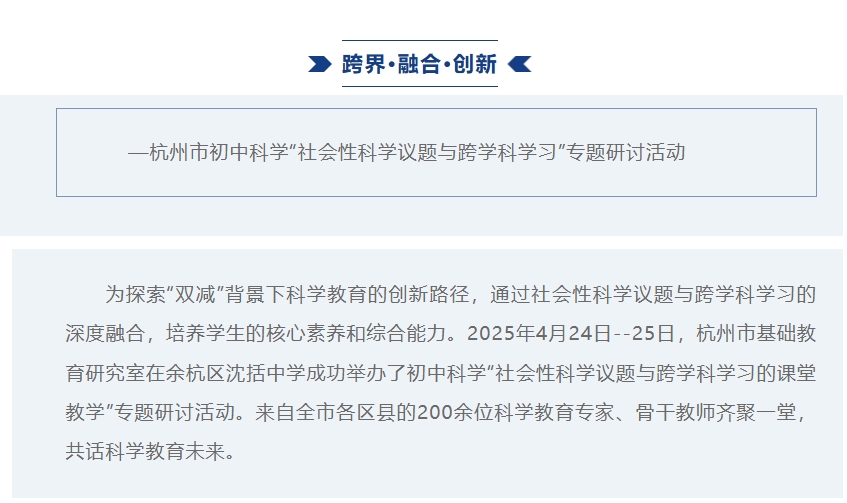
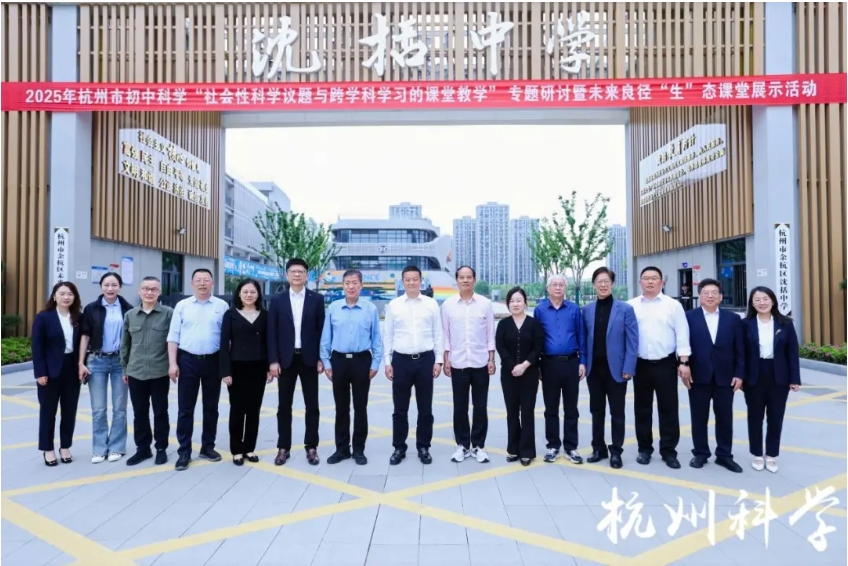
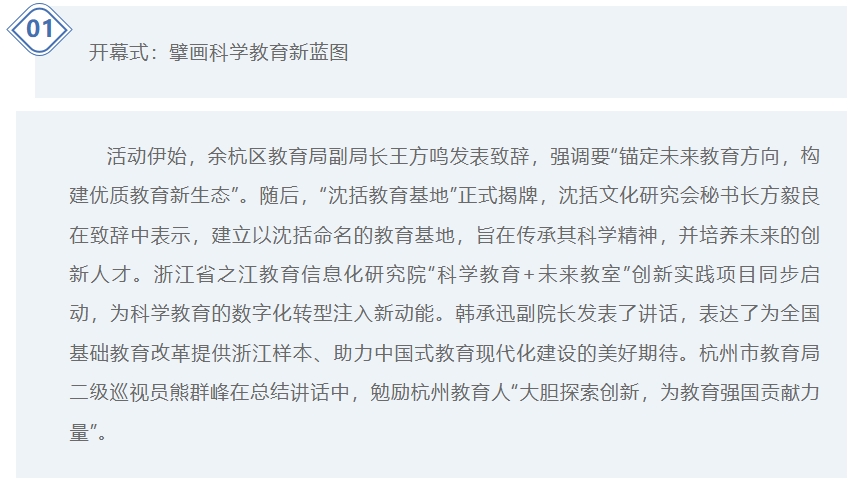
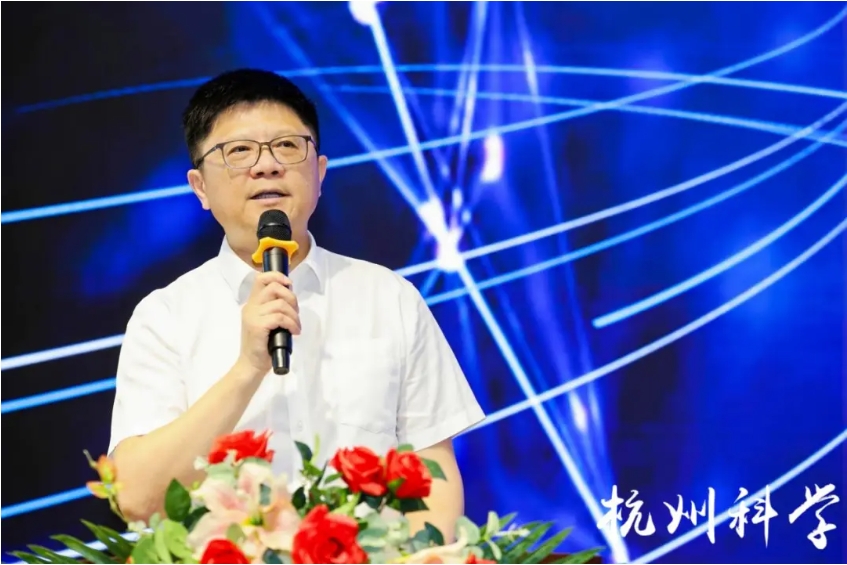
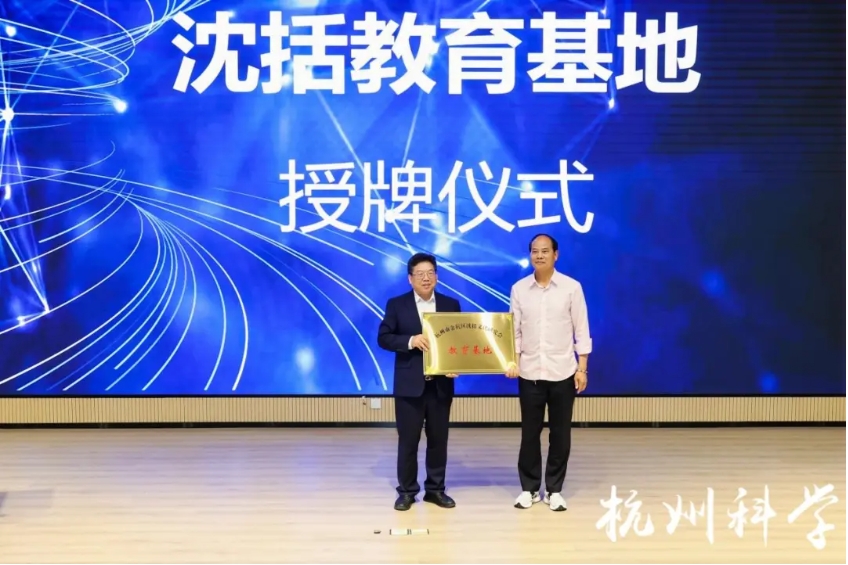
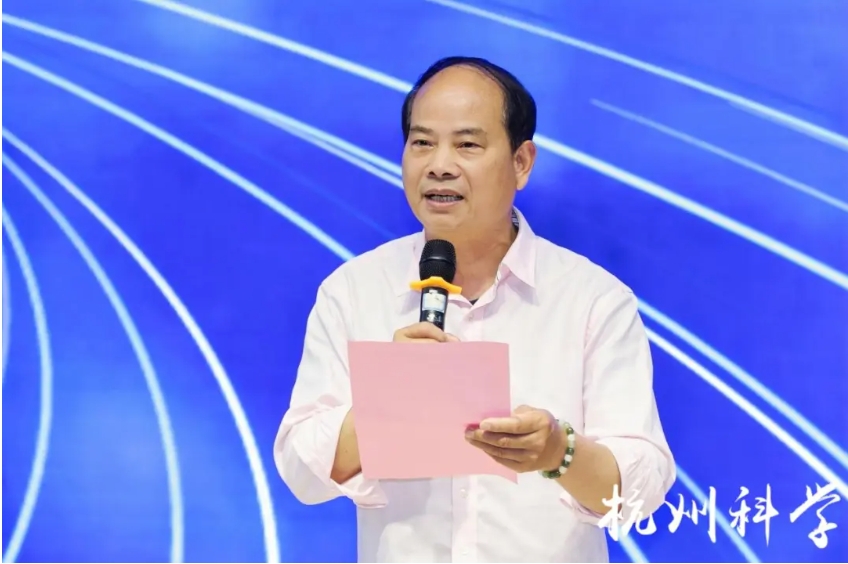
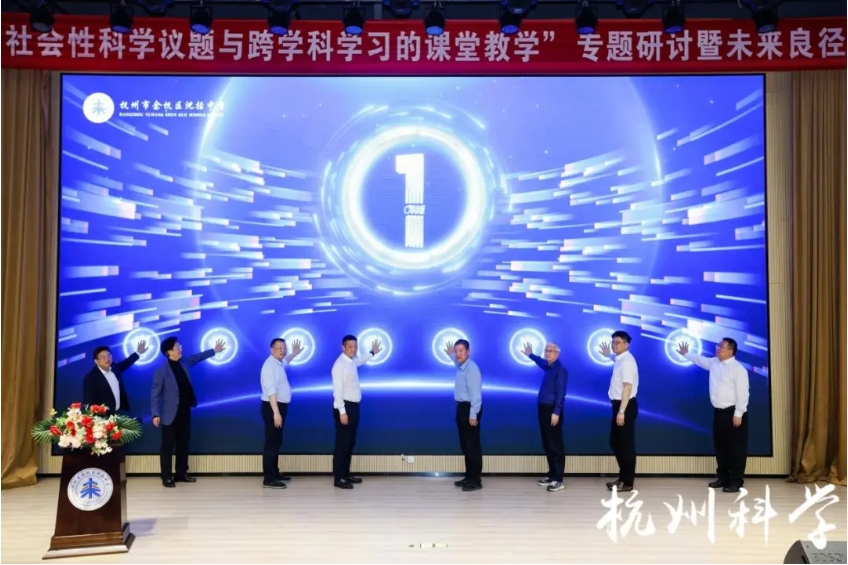
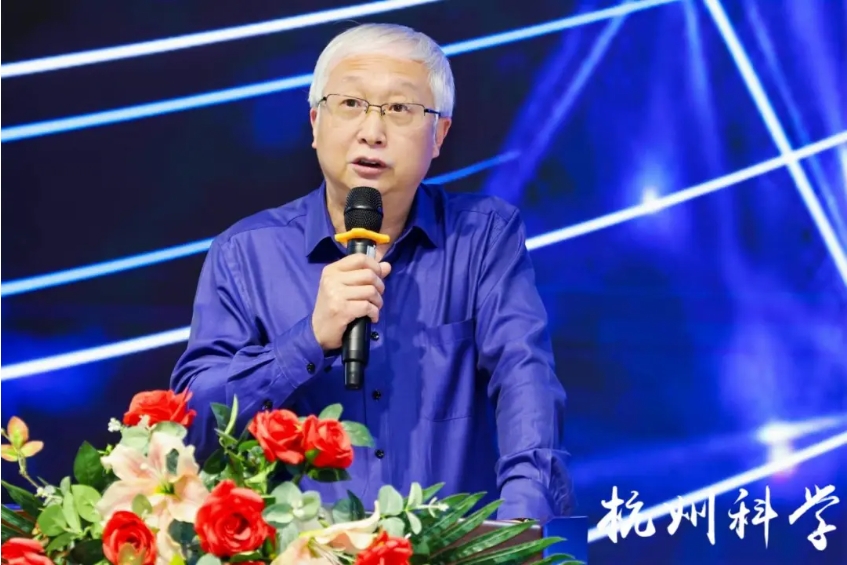
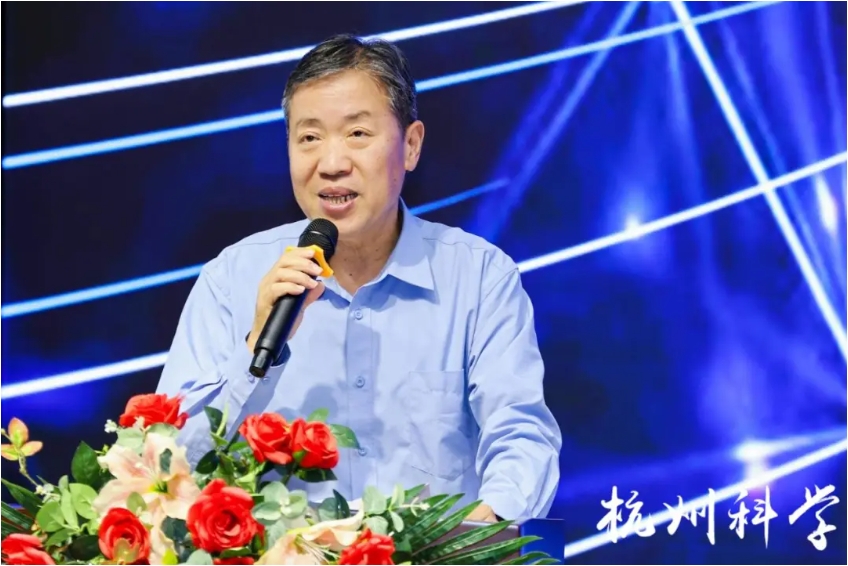
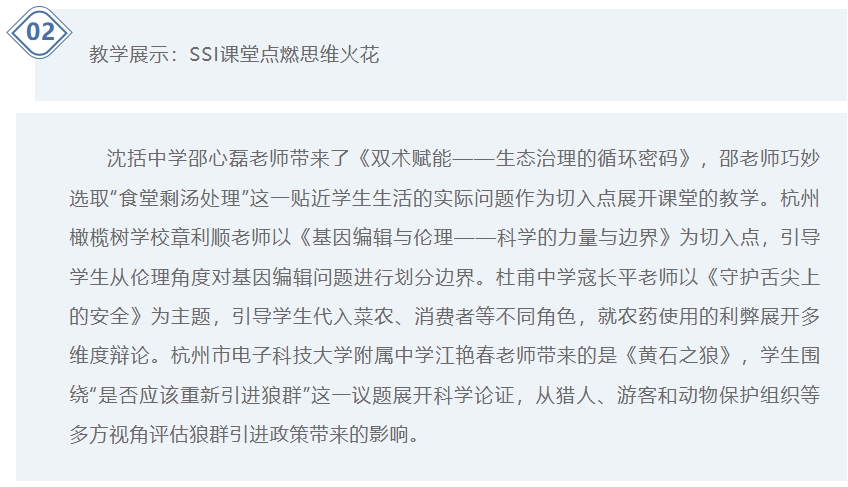
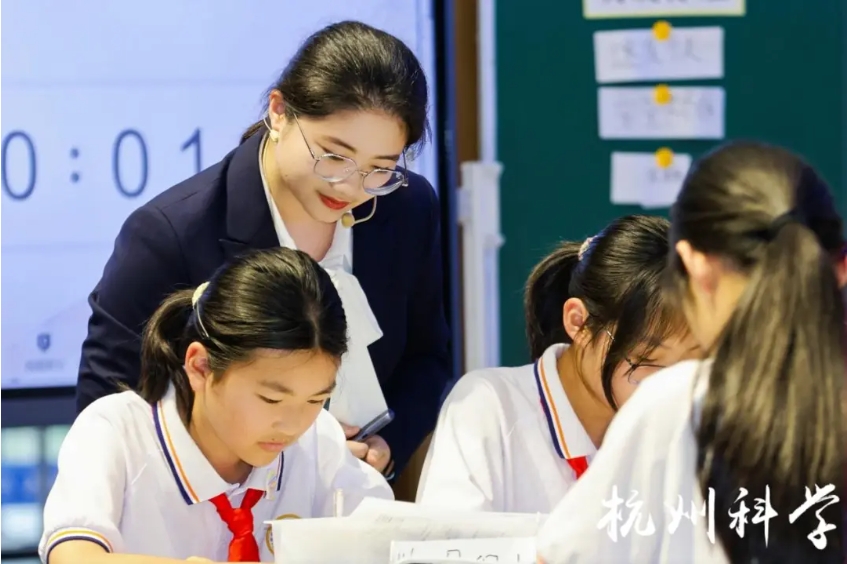
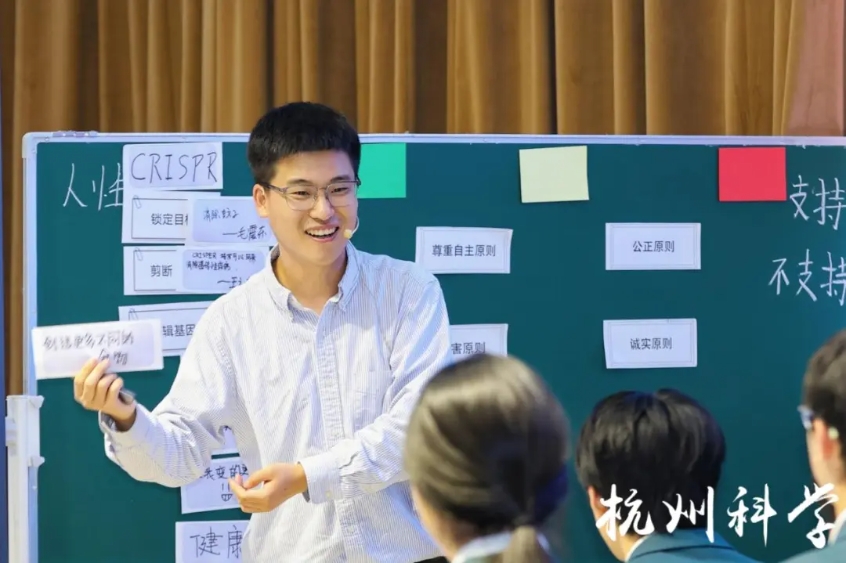
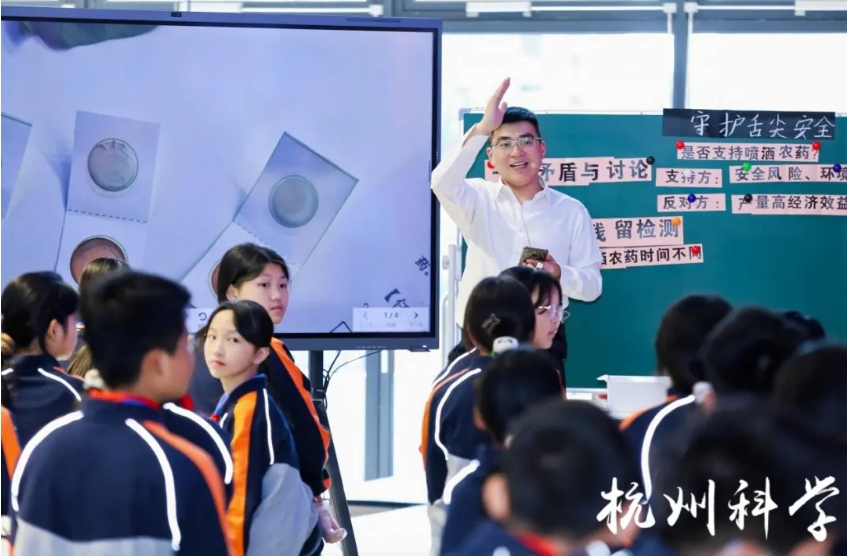
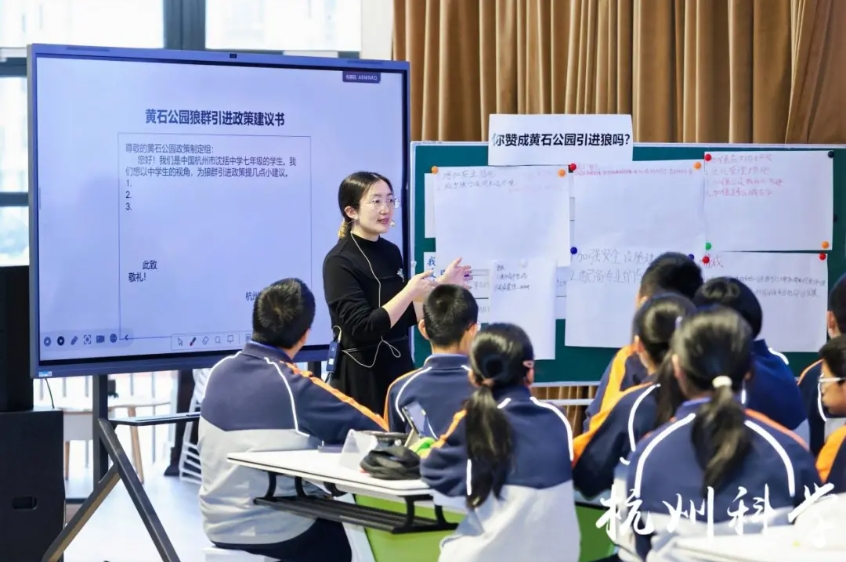
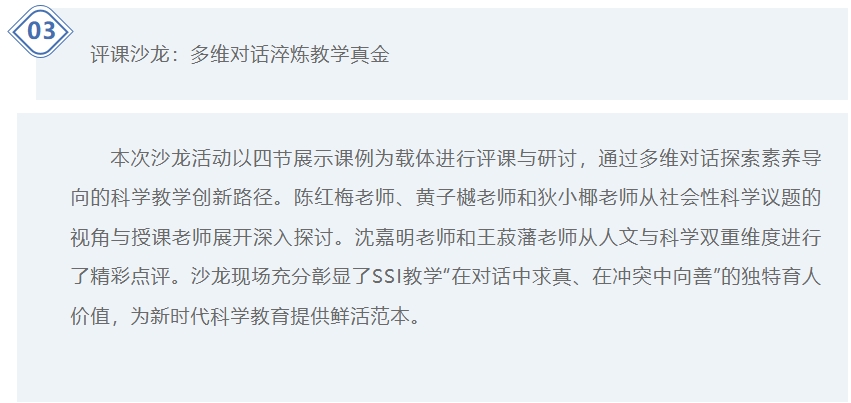
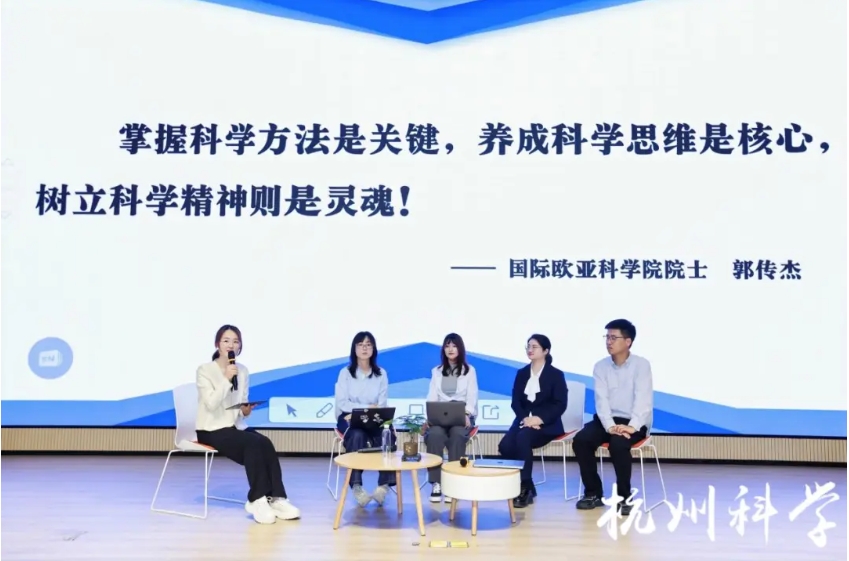
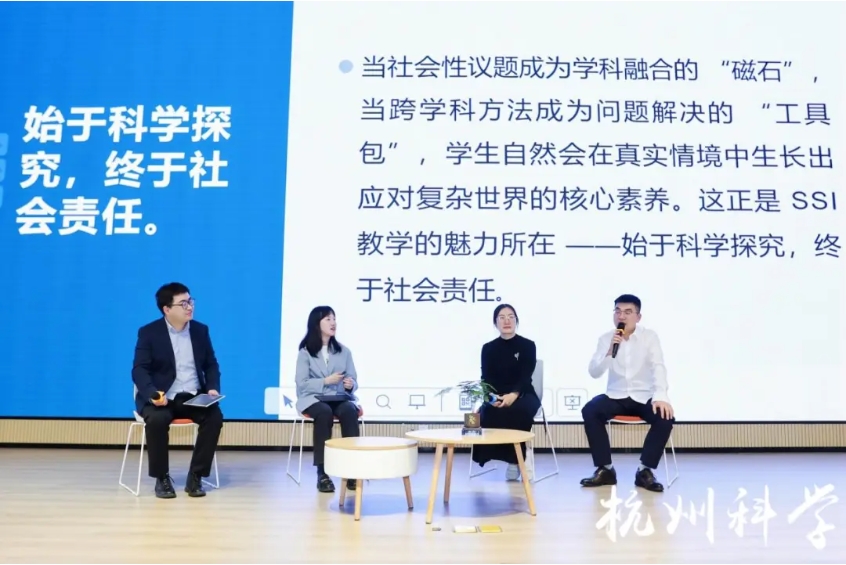
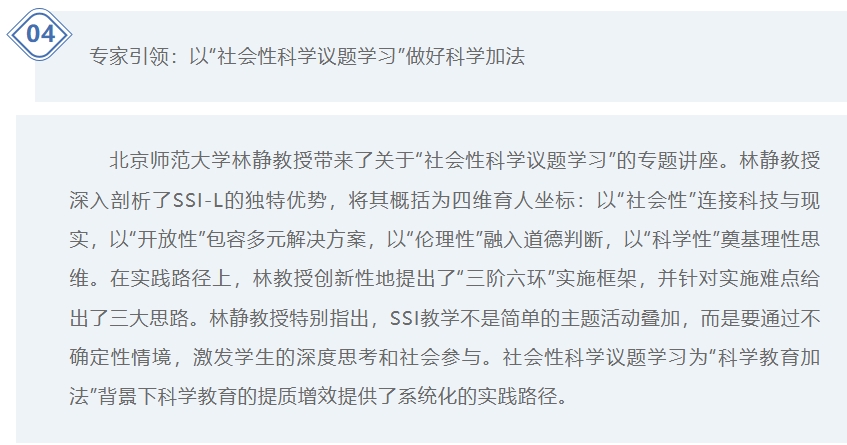
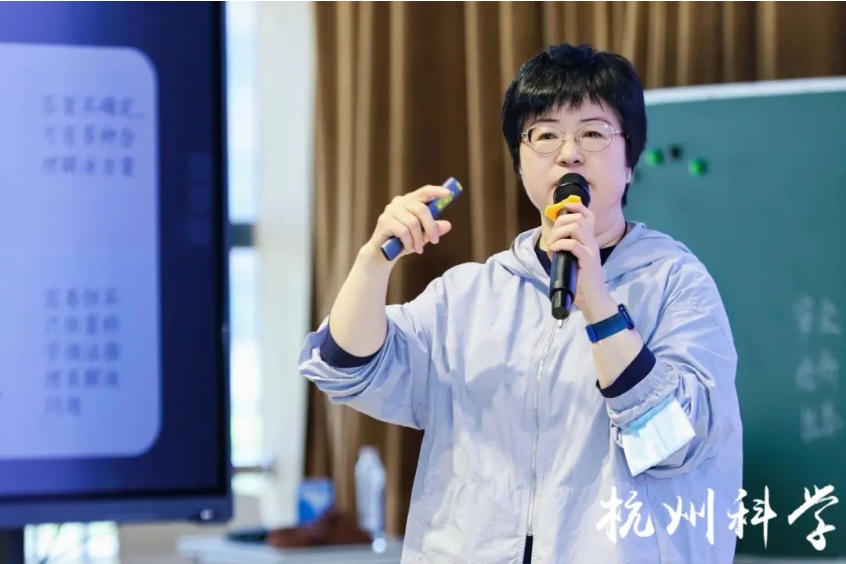
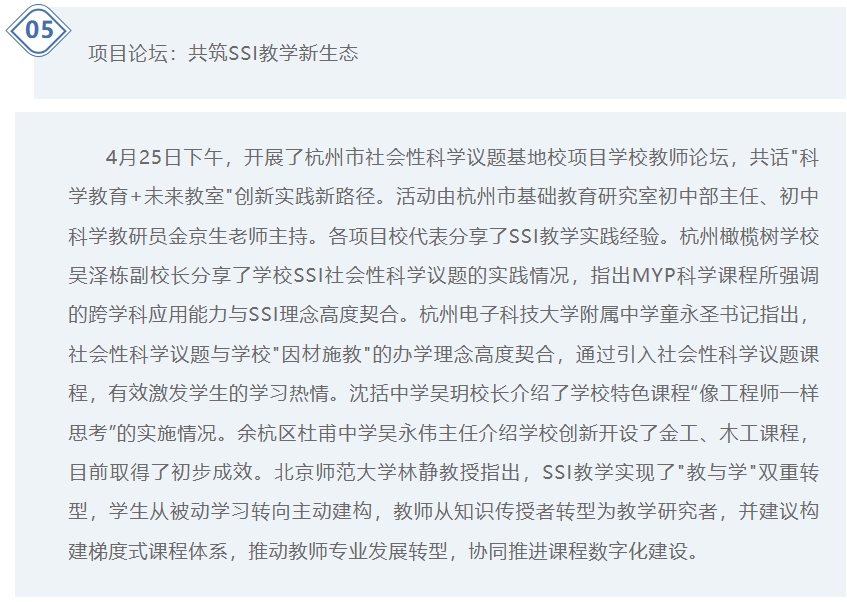
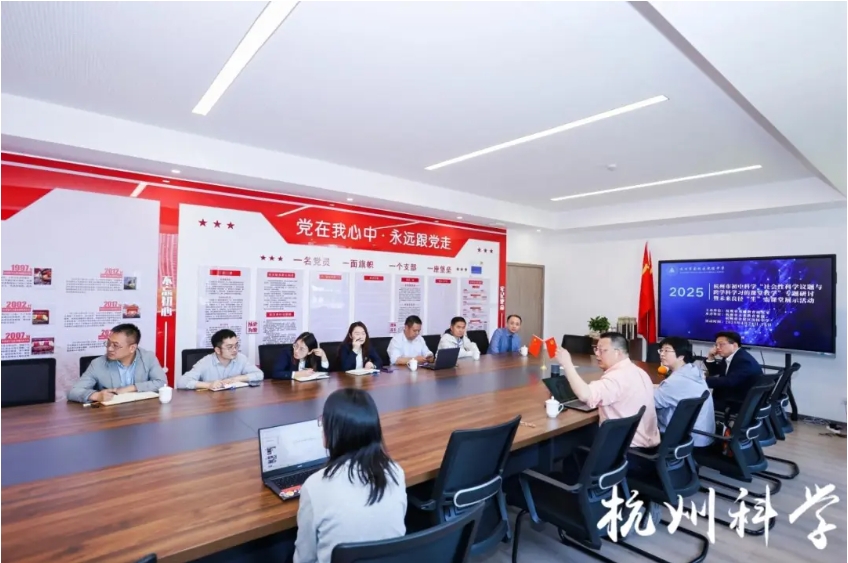
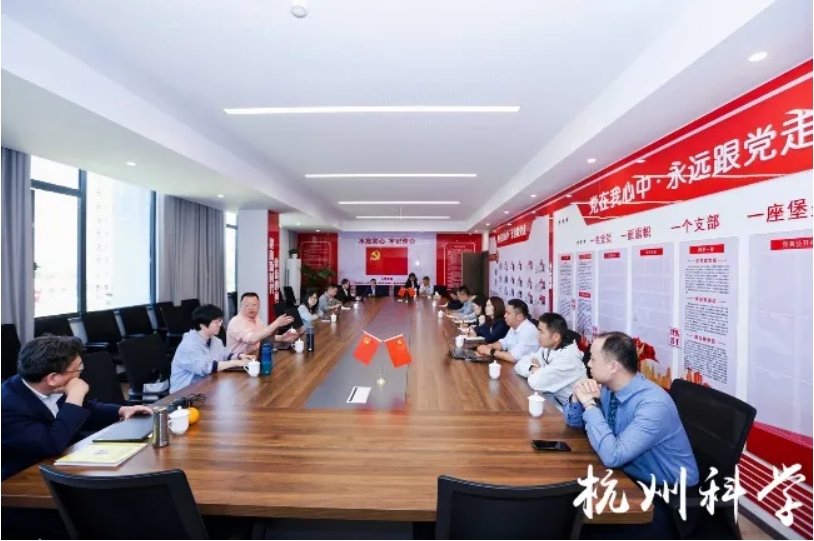

资料来源:杭州科学公众号
Transcending Boundaries·Integration ·Innovation — Hangzhou Junior High School Science Seminar on “Socio-Scientific Issues and Interdisciplinary Learning”
To explore innovative pathways for science education under the “Double Reduction” policy and to foster students’ core literacy and comprehensive abilities through the deep integration of socio-scientific issues and interdisciplinary learning, the Hangzhou Basic Education Research Office successfully held the Junior High School Science Thematic Seminar on “Classroom Teaching of Socio-Scientific Issues and Interdisciplinary Learning” at Shen Kuo Middle School in Yuhang District from April 24 to 25, 2025. Over 200 science education experts and backbone teachers from various districts and counties in the city gathered to discuss the future of science education.
Opening Ceremony: Charting a New Blueprint for Science Education
At the beginning of the event, Wang Fangming, Deputy Director of the Yuhang District Education Bureau, delivered his remarks, emphasizing the need to “anchor the direction of future education and build a new ecosystem for quality education.” Subsequently, the Shen Kuo Education Base was officially unveiled. Fang Yiliang, Secretary-General of the Shen Kuo Cultural Research Association, stated in his address that establishing an education base named after Shen Kuo aims to inherit his scientific spirit and cultivate future innovative talents. The Zhejiang Zhijiang Education Informatization Research Institute’s “Science Education + Future Classroom” innovative practice project was launched concurrently, injecting new momentum into the digital transformation of science education. Deputy Director Han Chengxun delivered a speech, expressing hopes of providing a Zhejiang model for national basic education reform and contributing to the modernization of Chinese-style education. Xiong Qunfeng, Level-II Inspector of the Hangzhou Education Bureau, in his concluding remarks, encouraged education practitioners in Hangzhou to “boldly explore innovation and contribute to building a strong power through education.”
Teaching Demonstrations: SSI Classrooms Spark Ideas
Shao Xinlei from Shen Kuo Middle School presented “Dual-Skill Empowerment—The Circular Code of Ecological Governance.” She selected the practical issue of “cafeteria leftover soup disposal”as an entry point for classroom teaching. Zhang Lishun from Hangzhou Olive Tree School used“Gene Editing and Ethics—The Power and Boundaries of Science”as an entry point to guide students in delineating the ethical boundaries of gene editing. Kou Changping from Dufu Middle School took the theme of “Safeguarding Food Safety”and guided students to assume roles such as farmers and consumers, engaging in multidimensional debates on the pros and cons of pesticide use. Students engaged in scientific argumentation on the issue of “whether to reintroduce wolf populations,” assessing the effects of wolf reintroduction policies from the viewpoints of hunters, tourists, and animal protection organizations.
Review and Discussion Salon: A Multidimensional Dialogue that Refines Teaching Excellence
The salon activity utilized the four demonstration lessons as a foundation for review and discussion, exploring innovative pathways for literacy-oriented science teaching through multidimensional dialogue. Teachers, including Chen Hongmei, Huang Ziyue, and Di Xiaoye, engaged in in-depth discussions with the presenting teachers from the perspective of socio-scientific issues. Shen Jiaming and Wang Shufan offered insightful commentary from the dual dimensions of humanities and science. The salon fully showcased the unique educational value of SSI teaching—“seeking truth through dialogue, pursuing goodness through conflict,” which provides a vivid model for science education in the new era.
Expert Guidance: Enhancing Science Education Through Socio-Scientific Issues-based Learning
Professor Lin Jing from Beijing Normal University delivered a keynote speech on “Socio-Scientific Issues-based Learning.” Professor Lin explored and analyzed the unique benefits of SSI-L, summarizing it as a four-dimensional educational framework: connecting technology and reality through “sociality,” embracing diverse solutions through “openness,” incorporating moral judgment through “ethicality,” and grounding rational thinking through “scientificity.” In terms of practical pathways, Professor Lin innovatively proposed a “three-stage, six-step” implementation framework and outlined three key strategies to tackle implementation challenges. Professor Lin particularly emphasized that SSI teaching is not merely the accumulation of thematic activities; rather, it stimulates students’ deep thinking and social engagement through uncertain contexts. Socio-scientific issues learning offers a systematic practical pathway for enhancing the quality and effectiveness of science education within the framework of “enhancing science education.”
Project Forum: Co-Building a New Ecosystem for SSI-L
On the afternoon of April 25, the Hangzhou SSI-L Project School and Teacher Forum was held to discuss new pathways for innovative practices in “Science Education + Future Classroom.” The event was hosted by Jin Jingsheng, Director of the Junior High Department of the Hangzhou Basic Education Research Office and Junior High Science Education Researcher. Representatives from project schools shared their experiences with SSI teaching practices. Wu Zedong, Vice Principal of Hangzhou Olive Tree School, shared the school’s SSI practice, noting that the interdisciplinary application skills emphasized in the MYP science curriculum align closely with the SSI philosophy. Tong Yongsheng, Party Secretary of Hangzhou University of Electronic Science and Technology Affiliated Middle School, stated that socio-scientific issues align closely with the school’s “tailored education” philosophy, effectively inspiring students’ enthusiasm for learning through the introduction of SSI courses. Principal Wu Yue of Shen Kuo Middle School introduced the school’s signature course implementation, “Thinking Like an Engineer.” Director Wu Yongwei from Dufu Middle School in Yuhang District introduced the school’s innovative metalworking and woodworking courses, which have seen preliminary success. Professor Lin Jing noted that SSI teaching achieves a dual transformation of “teaching and learning,” with students shifting from passive learning to active construction and teachers transitioning from knowledge transmitters to teaching researchers. She suggested building a tiered curriculum system, promoting the transformation of teachers’ professional development, and collaboratively advancing digital curriculum development.
This event showcased the educational wisdom of Hangzhou junior high science education, with “society as the classroom and literacy as the goal.” When science education genuinely transcends disciplinary boundaries and is grounded in real-world contexts, we will play a role in cultivating talents with innovative spirit and practical abilities for the new era.
